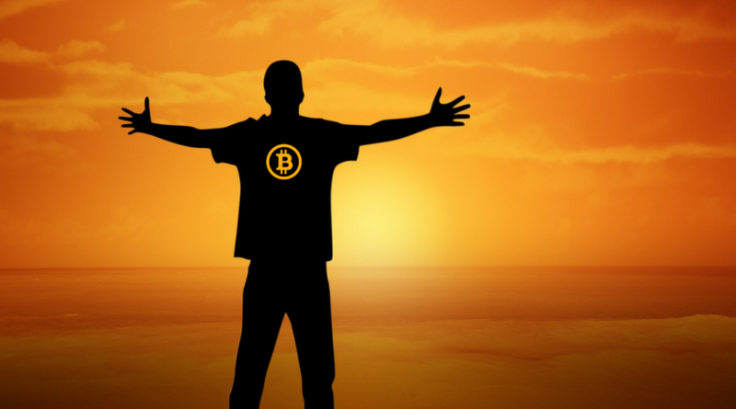The latest blockchain trend: Tokenizing people
Boris Akimov, a farmer and the founder of organic food startup LavkaLavka supported by its own blockchain token, will use the Waves Platform to tokenise his own skills and time.

Blockchain technology can literally make people into a transactable resource. The tokens that people trade with each other on a blockchain platform most commonly represent money. Consider Bitcoin, Litecoin, and other popular cryptocurrencies that people use to pay for things or speculate on their prices. Cryptocurrency tokens commonly take the place of fiat currency in what is an otherwise conventional financial transaction.
But this only scratches the surface of what's possible. Tokens can represent much more than money.
They might also be used to represent real-world assets ranging from real estate to stocks to oil. These assets are cumbersome to transfer or subdivide on the conventional market, so traders instead issue legally binding documents that represent a sale or change of ownership.
These agreements are often complex and difficult to track, so that's where blockchain technology shines. It has no problem recording the fractional sale of some diamond holdings, or recording the transfer of ownership over a portion of someone's real estate holdings.
As the blockchain makes it easy to record complex sales of conventional assets, it also opens up everything to trade. Yes, this even includes human beings.
Putting people on the blockchain
You've heard it said that time is money, and "tokenization of people" is really about the tokenization of their time. From entrepreneurs to celebrities, people are issuing cryptocurrencies pegged to their available time, then applying their skills and knowledge as necessary when users redeem these tokens.
In present day, a company called TokenStars is tokenizing high-profile figures from the sports and entertainment worlds, using the blockchain to effectively sell access to these people. It's early days for the company, which completed its token sale late last year, but TokenStars seeks to disrupt the $100 billion talent management industry by connecting participating stars directly with fans and advertisers. At no point is a middleman or talent agent involved — celebrites' time is monetized directly by the users who want access to them.
Boris Akimov, founder of the farming co-op LavkaLavka, is the entrepreneur who recently tokenized himself on Waves Platform for sake of sharing his skills with his token holders, monetizing himself in the process. Token holders can buy access to Akimov in one-second increments, where he will ply his abilities and expertise on investors' behalf. If he does good work and lots of people want his time, the value of these tokens increases.
On the other hand, if the market proves that fewer people want Akimov's help to solve a problem, the token value decreases.
What is human time worth?
A cryptocurrency's value is largely determined by demand. Although bitcoin is notorious for its fluctuations in value, it achieves its highest prices by being more useful and popular than other cryptocurrencies. More people want bitcoin than Litecoin, for example, so adds to its scarcity and increases its value.
Similarly, the people whose time is most in demand will see the highest prices for their tokens — the ICO price is only a starting point. Values will go up or down from there depending on market reactions and consumer behavior. In simplest terms, the free market determines what a person's time is worth. It's in a tokenized person's interest to be high demand.
A company called MyTime operates in this space, albeit to different ends. MyTime's blockchain platform makes it possible for companies to incentivize their users' behavior, paying them in cryptocurrency tokens for taking certain actions or spending their time doing certain things. It's not the individual who is tokenized here, but time itself.
Imagine if YouTube paid you to watch ads, or if a developer paid you per minute to play his new game. You don't necessarily need to tokenize yourself in order to make money via blockchain technology. Users' expenditure of time is tracked and verified on MyTime's blockchain, so when they spend time doing something that the company wants them to do, they're compensated for it.
Rounding it out
Cryptocurrency technology is not only changing the way people think about money, but it's changing what we consider monetizable as well. Tokenization makes things more financially liquid, and this includes abstract, non-tangible assets like skills, knowledge, and time.
If you have a unique skillset and are looking for a new, unlikely way to make money in the crypto world, then tokenize yourself!





















